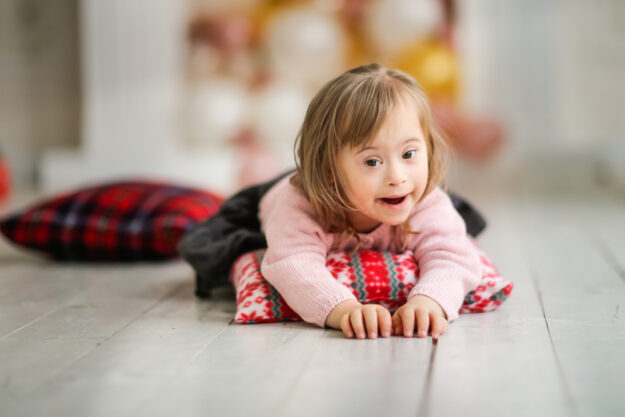Choosing to foster is a huge decision for your family. If one of your own children has additional needs, you may be wondering how fostering might impact your family life.
Becoming a foster parent is incredibly rewarding, but it also has its challenges. Let’s take a look at some factors to consider if you’re thinking about fostering with children and how your own child’s needs will play a role in your decision.

Is fostering right for my own children?
If you’re thinking about fostering while raising your own children, it’s really important to carefully and thoroughly consider if fostering is right for them. Having a child with additional needs does not mean that you’ll be excluded from becoming a foster parent– in fact, your unique parenting experiences and knowledge might make you an ideal candidate to foster.
What really matters is if you’ll have the capacity to care for your own needs, the needs of your children and the needs of the young people you’ll foster all at the same time. Only you know your own limits and your child’s needs, and our team will be on hand during your fostering assessment process to help you decide if it’s the right time for your family to begin fostering.
How will fostering impact my own child?
Growing up in a foster family can be both a rewarding and at times complex lifestyle. Adjusting to a new sibling can be a challenge, especially if your child favours routine or isn’t used to sharing their time with you. Struggles with sibling jealousy may become a factor, there’s a chance that your child may begin to imitate the behaviours of their foster siblings, and it can also be very painful to say goodbye when it’s time for a foster sibling to move on.
Having a foster sibling also has tons of benefits – you may begin to see your child come out of their shell more as you help them to build a positive relationship with their new sibling, giving children the chance to build loving relationships which can last a lifetime. Growing up in a foster family can also help to teach skills such as sharing, empathy and compassion for others.
Which type of fostering is right for me?
If you’re considering fostering while caring for a child with additional needs, one important factor to think about is which of the types of fostering will be best suited to your family’s needs.
For example, if your own child has autism, they may thrive better while living with a long-term foster sibling who will stay with the family until they reach adulthood rather than a style of fostering which involves many different children coming to live with you, such as respite or emergency fostering.
Do I have capacity to foster a child?
If your child has any additional needs, such as a physical disability, a neurological condition like Autism or ADHD, a learning disability or mental health struggles, you likely dedicate lots of time, energy and compassion to supporting them day-to-day.
Children who come into care also tend to need extra care and support. Many children in care live with complex developmental trauma as a result of their experiences at home, which can include abuse and neglect. As a foster parent, you’ll also take on lots of additional responsibilities to support your foster child’s wellbeing, such as attending frequent meetings, taking children to visit their birth family and completing daily paperwork. Be sure to carefully consider if you have the capacity to fully meet the needs of both your own children and the children who you’ll foster.
The importance of self-care for foster parents
Selflessness and putting the needs of children above your own are just some of the qualities which make a fantastic foster parent. However, only by giving proper care and attention to your own mental health will you be able to give your best to all of the children in your care.
As we discussed above, fostering a child comes with a lot of additional responsibilities, and you need to be sure that you can balance everybody’s needs while fostering, including your own. You must be able to trust that you’ll have enough time and energy to manage all of your caring responsibilities without becoming burned out. Check out our self-care guide for foster parents to learn more about finding balance as a foster parent.
Could you foster a child with additional needs?
Each foster parent has unique strengths and experiences which they bring to their role. If you are already experienced in caring for a child with additional needs, this could make you the ideal candidate to specialise in fostering children with complex needs.
With a current shortage of foster parents who are able to accommodate the needs of children with disabilities, your rich experience and support could be invaluable in changing a child’s life.






